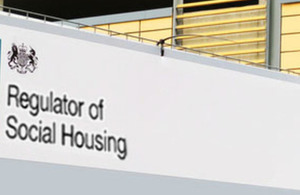Thank you, Madam President, for this debate and for the focus that Mexico is putting on Women, Peace, and Security this month. Thanks also to Under-Secretary-General Lacroix for his briefing. And in particular to Ms Boughani and Ms Lusala for their perspectives from the field— two of the most difficult environments for UN police and peacekeepers. So let me pay tribute to the men and women in UN police components around the world who protect and serve vulnerable communities.
As our US colleague has just said, the recent incident in the Central African Republic at the start of this month, in which a police contingent from Egypt was attacked, is a stark reminder of the difficult circumstances in which we deploy our peacekeepers, and of their dedication and courage. Host states have responsibility to observe Status of Forces Agreements and to ensure the safety and security of peacekeepers serving within their borders. We urge the UN and the Government of CAR to share the results of their investigations with the Council and police-contributing countries as soon as they are finalised, so that lessons can be learnt.
Mr President, UN Police are often the first and the last to meet with the local population, including women and girls, in response to a crisis. Political solutions and long-term peace cannot be achieved without strong relationships with those populations, founded on trust. That is why we welcome the focus of today’s discussion on the contribution UNPOL can make to women, peace and security.. The full, equal and meaningful participation of women in UN policing is not only a moral imperative, but critical to mission effectiveness.
By reflecting the local communities they serve, police can build trust and empower women and girls, and even inspire them to join their national police services, paving the way to sustaining peace. We want to see more female officers across the full range of roles, at all levels. The UK welcomes the steps taken by police contributors to meet the UN Secretary-General’s uniformed gender parity targets and we continue to support the work of the Elsie Initiative, having contributed over $6.3 million to the initiative since 2019.
Madam President, police week gives us an opportunity to look at the full range of UN policing challenges. Policing is a central cog of peacekeeping: it helps to establish a protective environment for civilians, restore security and justice and re-establish rule of law in conflict-affected areas.
We owe it to our policing personnel to bring the same resolve to ensuring their safety and supporting their effectiveness as we do with their military counterparts. This includes addressing the outstanding recommendations from the 2016 External Review of the UN Police Division and finalising the Strategic Guidance Framework and rollout of training courses.
Madam President, I would like to draw attention to three issues that we think are critical to delivering on the Secretary-General’s Action for Peacekeeping agenda and A4P+ priorities: First, police experts need to be at the top table in missions, treated as an essential part of integrated mission planning throughout the life of a mission, from inception to transition, drawing on relevant intelligence, reporting and data.
Second, recruitment needs to be fair, timely and merit-based, selecting the right skills, capabilities and expertise that particular missions need, and ensuring this is deployed appropriately by those missions.
And thirdly, police need to be fully integrated into UN systems, including the Peacekeeping Capability Readiness System, the Light Coordination Mechanism, the Integrated Peacekeeping Performance and Accountability Framework and the Comprehensive Planning and Performance Assessment System.
Finally Madam President, I would just like to point two specific questions to Mr Lacroix. And they are firstly, could you say something about what the UN police division is doing to support better coordination between civilian military and police components- such as through integrated operation planning and inter-mission dedicated coordination mechanisms? And secondly, as others have said, we are concerned about the allegations of sexual exploitation and abuse— nine in the last year against UNPOL personnel and peacekeeping missions. Nearly all cases are still pending an outcome by the UN and all countries are pending Police Contributing Country action. So what steps is UNCA taking to tackle SCA including in-mission awareness training and police leadership.
Thank you, Madam President.


